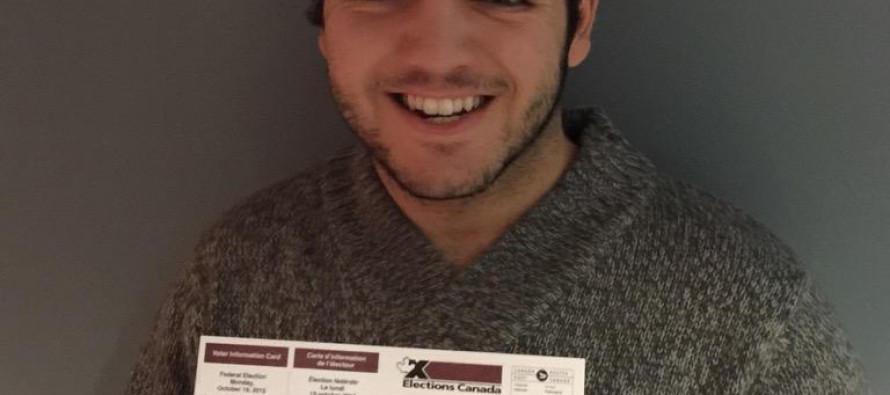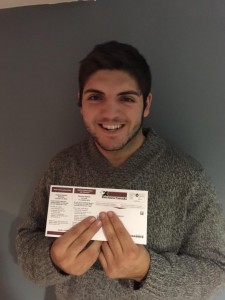Young Voters Speak on Election

Jonathan O’beid poses for a portrait holding his voter card
With election day approaching, a new generation of young voters are taking part in the process for the first time.
Some students at the University of Windsor have taken time during their fall reading week to research candidates and issues both locally and nationally.
Getting young people to the polls has been an issue in years past. In Canada’s 2008 federal election only 38.8 per cent of young voters ages 18-24 casted a ballot. The number of young voters pales in comparison to that of voters ages 65-74 who managed to get 75.1 per cent of their demographic to vote.
University of Windsor student Jonathan O’beid, 19, said it is important for eligible students to take part in the election.
“I believe voting is not only a right but an obligation. It is our opportunity to both have a voice and try and make ourselves count,” said O’beid.
However, not all young voters feel this way. Even with advanced polling dates which allow Canadians to vote who cannot attending polling stations on election day, few young voters have opted for this method. Only five per cent of young voters used advanced polling dates in 2008.
With tuition reaching record costs in recent years, students say they have a reason to be involved in electoral conversations. While the average tuition in Canada rose from $5,756 last year to $5,959, the country’s unemployment rate continues to fluctuate, currently sitting at 7 per cent.
Doran Anzolin, first year student at the University of Windsor is beginning to grow weary of the amount of money he has spent on his education.
“My biggest issue is students investing money into education and the government not producing enough quality jobs for graduates resulting in students finding themselves in debt,” said Anzolin. Ontario currently has the highest average tuition fees of all the provinces at $7,539.
Election Day is Oct 19, 2015. Check the Elections Canada website for the polling location in your riding.



